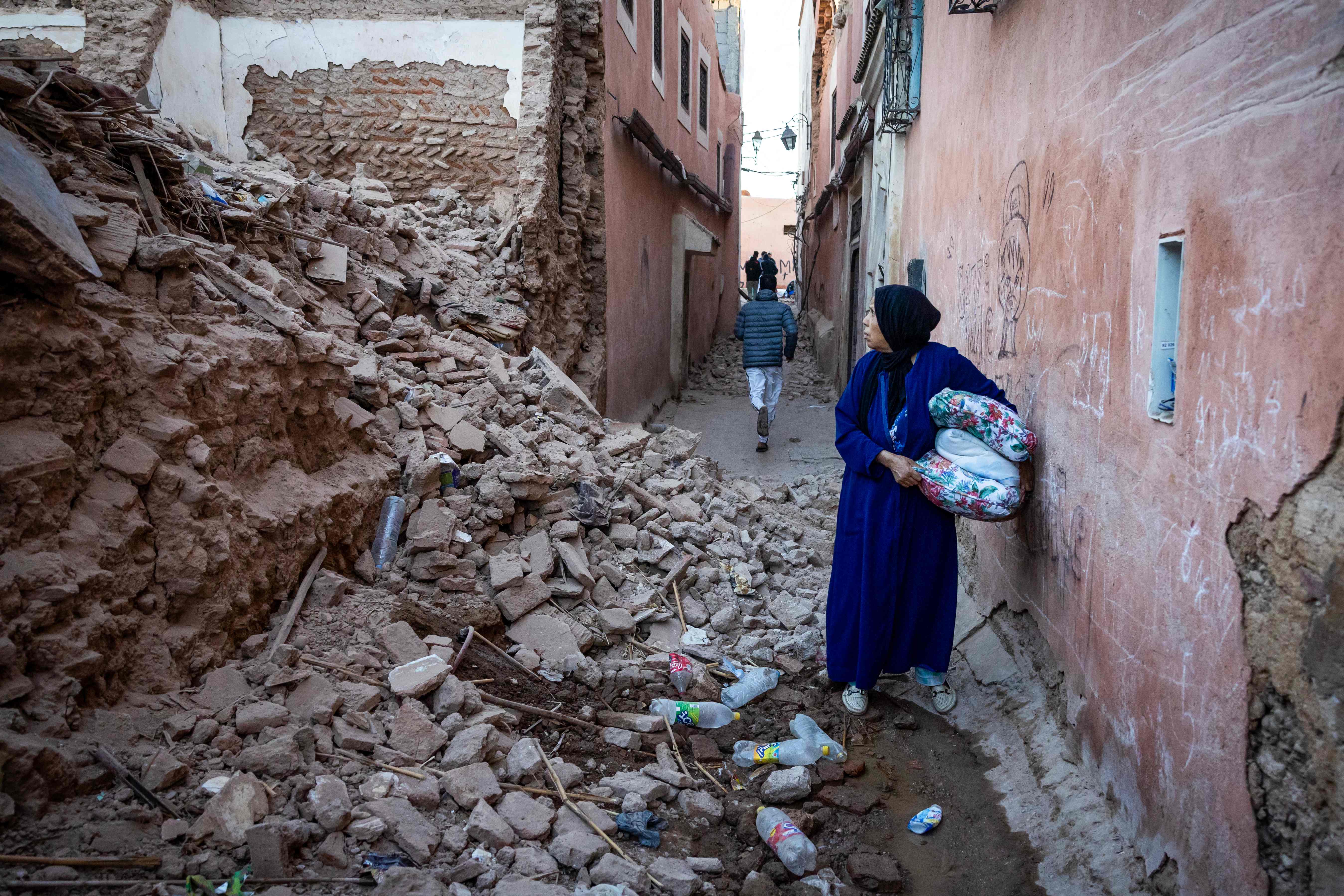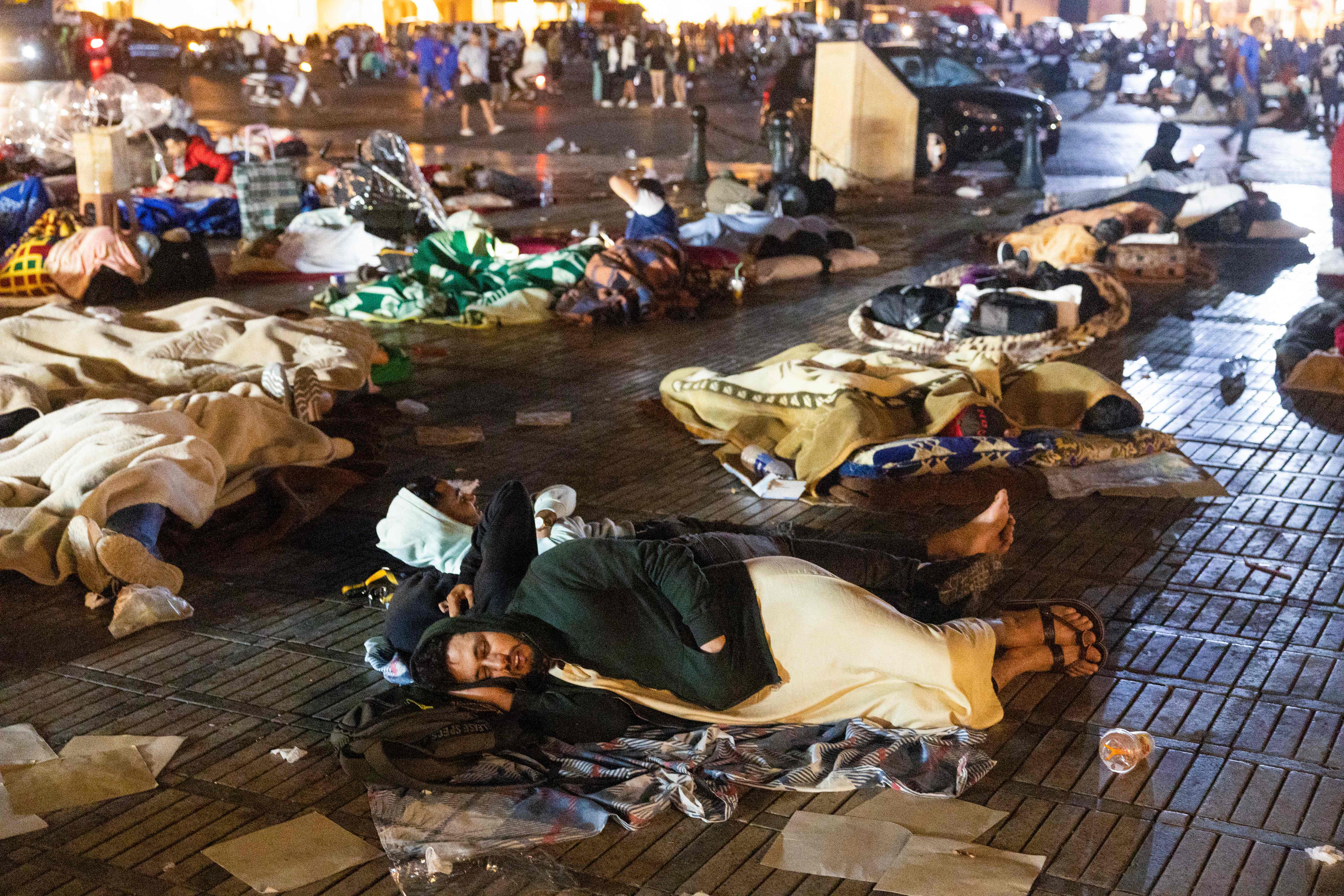Your support helps us to tell the story
From reproductive rights to climate change to Big Tech, The Independent is on the ground when the story is developing. Whether it's investigating the financials of Elon Musk's pro-Trump PAC or producing our latest documentary, 'The A Word', which shines a light on the American women fighting for reproductive rights, we know how important it is to parse out the facts from the messaging.
At such a critical moment in US history, we need reporters on the ground. Your donation allows us to keep sending journalists to speak to both sides of the story.
The Independent is trusted by Americans across the entire political spectrum. And unlike many other quality news outlets, we choose not to lock Americans out of our reporting and analysis with paywalls. We believe quality journalism should be available to everyone, paid for by those who can afford it.
Your support makes all the difference.The Morocco earthquake that has killed more than 2,000 people was the strongest to hit the north African nation in several decades.
The earthquake struck just after 11pm on Friday and has impacted the entire region, with tremors being felt thousands of miles away in Portugal and Algeria.
The quake’s epicentre is in the middle of the country and located at the High Atlas Mountains in the Ighil area, about 40 miles (70km) south of Marrakech.
The Morocco earthquake’s epicentre was said to be 18km below the Earth, as per the USGS. Morocco’s own National Seismic Monitoring and Alert Network, however, estimated it to be at 11km below the surface.
The depth of an earthquake is said to be an important factor in severe its impact can be. A shallower depth means any given earthquake will be more dangerous.
Shallow earthquakes, according to the US Geological Survey (USGS), occur at a depth of 0-70km and most of the deaths from the current powerful tremor occurred at hard-to-reach mountainous areas of the country.
An aftershock measuring 4.9 in magnitude followed the earthquake about 20 minutes later, said the USGS.

Morocco’s interior ministry said the tremors struck at least six provinces: Al Haouz, Ouarzazate, Marrakech, Azilal, Chichaoua and Taroudant.
The tremors toppled several buildings across cities and sent people running from their homes late at night.
Photos and videos showed scores of people on the streets at night, with many clutching their belongings, and some resting outside closed shops and huddled out in the open.
In Marrakech, some houses collapsed and people worked hard by hand to remove debris while they waited for heavy equipment, said resident Id Waaziz Hassan.
Photos also showed cars crushed under massive debris and covered in dust and rescuers attempting to lift the rubble through heavy equipment.

Powerful tremors were felt as far as Morocco capital Rabat, about 350km north of the epicentre, and Imsouane, a coastal town about 180km west. Residents there fled their homes as well fearing a stronger aftershock, according to Reuters.
“The earth shook for about 20 seconds. Doors opened and shut by themselves as I rushed downstairs from the second floor,” said Hamid Afkar, a teacher at the Taroudant province.
Some experts have said they feared more aftershocks in the aftermath of the powerful quake.
Jonathan Stewart, a professor of civil and environmental engineering from the University of California, Los Angeles, told CNN he expected the magnitude of these aftershocks to be in the “high fives”.
He also feared the Friday earthquake was just a precursor to a more powerful one.
Mr Stewart said the quake was 30 times weaker than the one that struck Turkey earlier this year.
He, however, said the Morocco quake still released “a tremendous amount of energy”.
The quake was felt as far off as Portugal and Algeria, with over 20 million people having felt shaking, earthquake geologist Wendy Bohon said on X.

Earthquake geologists Judith Hubbard and Kyle Bradley wrote in a blog that the latest quake is also the largest in magnitude ever recorded in the country, with a previous similarly large quake in the region recorded in 1624 AD near Fez, in the northeast part of Morocco.
They said the scientific models of plate tectonic movements in many parts of the world reflect the reality of their boundary zones "quite well", but that "this is not the case in Morocco".
They said the boundary is “highly complex with multiple zones of active deformation” in Morocco.
Professor Joanna Faure Walker, a geologist from the University College London, also noted that the death toll figures are likely to increase significantly, especially since the quake struck at night.
“When an earthquake occurs at night, people can be particularly vulnerable as getting out of their homes and navigating rubbles and debris in the dark adds to risk of injury and getting trapped. The early death toll figures are likely to increase significantly as early information is limited and rescue efforts are ongoing," Dr Walker said in a statement.




Join our commenting forum
Join thought-provoking conversations, follow other Independent readers and see their replies
Comments